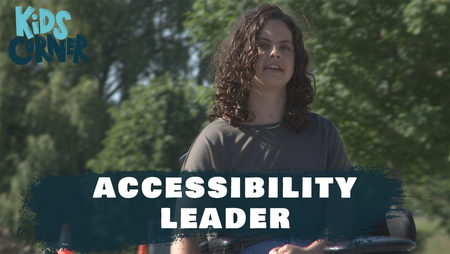
God’s Strength Through Hard Times
Bible Verse
9 But he replied, “My gift of undeserved grace is all you need. My power is strongest when you are weak.” So if Christ keeps giving me his power, I will gladly brag about how weak I am. 10 Yes, I am glad to be weak or insulted or mistreated or to have troubles and sufferings, if it is for Christ. Because when I am weak, I am strong. 2 Corinthians 12: 9-10
Is your family facing struggle, pain, or loss? Helping our children navigate painful experiences can feel especially difficult when we ourselves are at our lowest.
In his second letter to the Corinthians, Paul shares the struggle of an unnamed but apparently persistent “thorn." Though he asks God three times to remove his struggle, his circumstances remain unchanged. Paul’s plea does yield something valuable, however: a shift in perspective that allows him to recognize God’s strength in a time of personal weakness.
Hardship is an inescapable part of the human experience. When families face difficulty, kids gauge their feelings and responses on how they see adults respond. That doesn’t mean we have to put a falsely positive spin on suffering; real hope wrestles with the circumstances.
It’s okay to say, “This is hard, but God is greater.”
If your child’s pain is unique to him or her, acknowledge it as real. Minimizing a child's struggle will not help them move past it more quickly. For example, when a child feels wronged by a sibling, we must first acknowledge our child’s distress. Only in the calm after the storm can we ask how that struggle might teach something important, from appreciating one another’s differences to learning how to be more patient with each other.
The Bible is full of ordinary, broken people whose pain or trials God used for his glory. Read Esther, Job, 1 Samuel 17 (David and Goliath), and Exodus 3 (Moses and the burning bush) together, and discuss the ways the people in the stories respond to God and how God responds to them. Note the ways God works through his people’s weaknesses for his glory.
Studies show that kids build resilience through family story-telling. Share stories of your own experiences in which things seemed bleak, but looking back, you can see the way the Lord worked to bring you closer to him. Talk together when you recognize that adversity yields strength, faith, or hope. For example, our youngest son has Down syndrome. When he was born, my husband and I felt overwhelmed by his diagnosis and the challenges it presented. Our two very young daughters, however, received the gift of their brother with uncomplicated adoration. Watching them love and care for him nourished and strengthened our worried hearts. I love reminding them how God used them at such a young age to strengthen our family.
Hardship presents opportunities for the body of Christ to unite and offer hope and strength to one another. As a family, look for ways to be God’s hands and feet in a broken world. At twenty-eight, my husband was diagnosed with cancer. We were expecting our first child. Though frightening, his extended illness connected us more deeply to our community through acts of love, service, and care. It also taught us that it was okay to ask for help when we needed it.
Even Paul, who could perform miracles in the name of Jesus, could not rid himself of the “thorn in his flesh.” By God’s grace, he began to see purpose in it. And his response is one we ourselves can emulate. Just like Paul, we can commit the care and keeping of our lives to God with confidence, because we know his power is made great in our weakness. Because the Creator of the universe is eternally for us and with us, we can face hardship with hope.
Want to do a deep dive? Check out Family Fire's articles: Family Grieving: Navigating Loss Together and Scripture's Promises in Tough Times.




